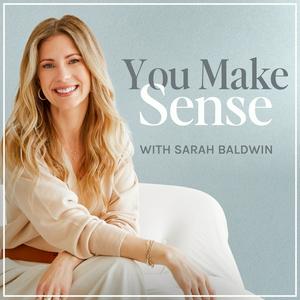In this episode, Sarah explains how unhealthy shame forms, why unresolved anger resurfaces in safe relationships, and how we unknowingly build our lives around avoiding what once felt intolerable. She breaks down what it truly means to complete the stress response by building regulation, reconnecting with younger parts, and allowing the body to express the appropriate response it once inhibited. When the stress cycle is resolved, the lie of unworthiness dissolves. What remains is your innate capacity for strength and self-trust.
Episode Highlights:
[00:00] Introduction
[01:16] Shame, anger, and unworthiness
[04:57] Protective strategies we use to avoid shame and unworthiness
[06:34] How “I am not enough” gets internalized in childhood
[11:48] Shame as the internalization of trauma
[13:45] Healthy shame versus unhealthy shame
[22:52] How unresolved shame distorts your reactions
[25:13] Healthy anger versus unhealthy anger
[28:17] Why suppressed anger resurfaces in safe relationships
[30:27] Key steps to resolving shame
[33:53] Completing the incomplete experience
[41:42] Question 1 - Why does rage from past assault still feel stuck in my body?
[48:13] Question 2 - How do I know when a trauma cycle is truly complete?
[52:50] Question 3 - Why does setting boundaries make me feel unloving?
[57:00] Question 4 - What is the healthiest way to release anger toward my family?
Get on the Waitlist for Sarah’s 10-Week Program:
Ready for tools to heal every area of your life? You Make Sense is a 10-week live program that goes far beyond these weekly podcast episodes to give you powerful somatic exercises and resources to address your nervous system, relationships, younger parts, purpose, boundaries, grief, and more!
Click below to get on the waitlist for limited-time reduced pricing:
https://bit.ly/sp-yms-waitlist
Download Sarah’s FREE Workbook:
Not sure where to get started with somatic healing? Sarah created a FREE trauma-informed workbook called "How To Gain Control Over How You Feel" to help you step toward a life filled with more freedom, ease, and empowerment.
Click the link below to download:
https://bit.ly/yms-sp-workbook
Connect with Sarah on:
Email Community - bit.ly/yms-sp-newsletter
Instagram — instagram.com/sarahbcoaching
Website — sarahbaldwincoaching.com
Submit a Question:
sarahbaldwin1.typeform.com/podcast
Quotes:
“We have a primal human need for our caregivers, who brought us into the world, to love us, to choose us, and when they don't, it feels to that child like annihilation. Annihilation is worse than death. It feels like a fragmenting of us in a million pieces.” — Sarah Baldwin [0:09:04]
“Shame is the internalization of what happened to us.” — Sarah Baldwin [0:11:54]
“What does the internalization mean? It means I am taking the thing that they are projecting at me, and I am putting it, effectively, inside of my own body.” — Sarah Baldwin [0:13:19]
“The meaning that I make is not that this thing that happens to me is bad, this abuse is bad, or this neglect is bad, or your criticism is bad; [it’s that] I’m bad. That's the meaning that is made from internalization.” — Sarah Baldwin [0:13:31]
“We need to bring regulation to our nervous system. That's always the beginning of everything. Why? Because we have to build our capacity to hold the shame that was once too much for us to hold.” — Sarah Baldwin [0:30:42]
“When we love our parts, we fall in love with them, that lie of unworthiness dissolves, and all that's left is what is actually true, that we are worthy and good and whole.” — Sarah Baldwin [0:40:01]


